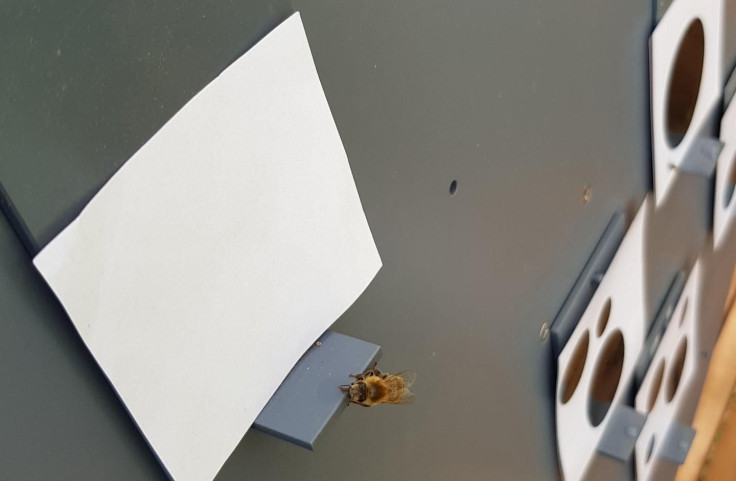Intelligent Insect? Study Shows Honeybees Get The Notion Of Zero

A new study looking into honeybees and their intellectual abilities has revealed that the tiny brains of the insects understand the concept of zero, the backbone of modern mathematical concepts and technological advancements.
“Zero is a difficult concept to understand and a mathematical skill that doesn’t come easily — it takes children a few years to learn,” Adrian Dyer, an associate professor at RMIT University, Australia, and one of the authors behind the latest work, said in a statement. For long, it was believed that humans were the only ones to get the concept, but the recent work has changed the notion.
Previous researches revealed that animals with big brains like birds and monkeys grasp the idea of zero, and now, in the latest study, the scientists have shown that insects, particularly bees, are also included in that category. The surprising finding indicates that honeybees might be much cleverer than we thought.
The RMIT group proved the ability of bees to rank numerical quantities by conducting an experiment in a specially-designed apparatus. They lured a few honeybees, which are seen as a perfect model for insect cognition, into the apparatus and trained them to choose the image that had the lowest number of elements.
While humans have more than 86 million neurons firing in their brains, bees don’t even have a million. Meaning, they cannot be trained in the same way like us. However, the researchers solved this problem and managed to train the bees by offering them a sugar solution on correct identification.
The insects soon learned to determine that two was smaller in two vs three elements and three was smaller in three vs four elements. And, when the surprise test, with a completely blank image or "empty set," was conducted for the first time, the bees already knew that it was at the lower end in a sequence of elements and decided to fly toward it.
Neurons can easily respond to light and other stimuli, but the ability to represent nothing as zero indicates that some animals and insects may have evolved special neural mechanisms to perform the task.
“If bees can learn such a seemingly advanced maths skill that we don’t even find in some ancient human cultures, perhaps this opens the door to considering the mechanism that allows animals and ourselves to understand the concept of nothing,” Dyer added in the statement.
That said, as zero forms the core of maths and binary code, the researchers think that the neural model mechanics in bees could be used in the development of robotics and machine intelligence.
“If bees can perceive zero with a brain of less than a million neurons, it suggests there are simple efficient ways to teach AI new tricks.”
The paper “Numerical ordering of zero in honeybees” was published on June 8 in the journal Science.
© Copyright IBTimes 2025. All rights reserved.





















